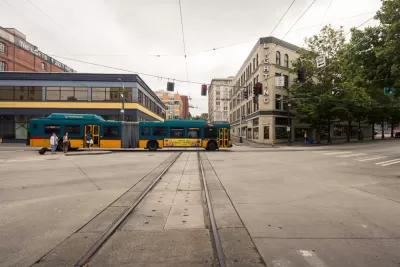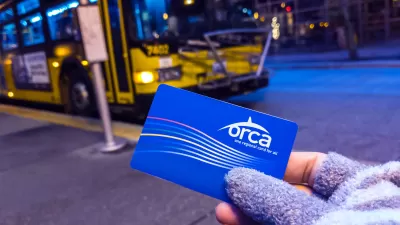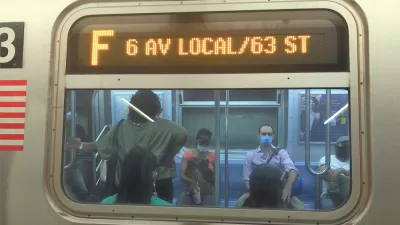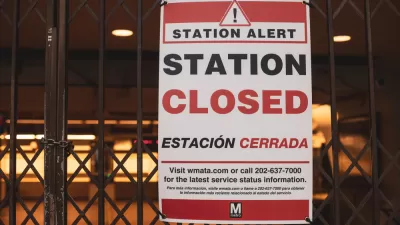Seatback signage and reduced capacity will allow King County Metro to begin resuming bus service. In the wake of staff illness and depleted funding, the road to Metro's recovery could be quite long.

After three successive service cuts starting in mid-March, King County Metro announced Monday that some buses will resume service. The plan to restore service includes extra trips on several routes and fare-free rides through the month of May.
"Service cuts have primarily affected weekday service, resulting in nearly a 30% reduction of trips. The latest counts indicate that weekday bus ridership has somewhat stabilized at around a 73% drop over last year," writes Stephen Fesler. The most stable ridership since the onset of the pandemic has come from primarily low-income, urban communities that rely heavily on public transit day-to-day. Extra bust trips are prioritizing services in these areas where the coronavirus has least impacted ridership.
In addition to increased trips, signage will be installed in transit vehicles to promote the observance of social distancing mandates. Starting in the next two weeks, signage will include placards placed on seatbacks to enforce social distancing, "limiting capacity on buses to 12 riders on 40-foot buses and 18 riders on 60-foot buses." Metro will also continue to request that symptomatic riders to refrain from using their services and will require all riders to wear masks.
Despite these restrictions and requirements, several metro staff members have been exposed to the coronavirus and contracted COVID-19, including one operator who died from the disease. Given these concerns and financial distress due to the lack of federal assistance, Metro is expected to have a difficult time recovering from the decrease in ridership.
FULL STORY: Metro Restoring Some Bus Trips To Meet Demand, Installing More Social Distancing Signage

Alabama: Trump Terminates Settlements for Black Communities Harmed By Raw Sewage
Trump deemed the landmark civil rights agreement “illegal DEI and environmental justice policy.”

Study: Maui’s Plan to Convert Vacation Rentals to Long-Term Housing Could Cause Nearly $1 Billion Economic Loss
The plan would reduce visitor accommodation by 25% resulting in 1,900 jobs lost.

Planetizen Federal Action Tracker
A weekly monitor of how Trump’s orders and actions are impacting planners and planning in America.

Wind Energy on the Rise Despite Federal Policy Reversal
The Trump administration is revoking federal support for renewable energy, but demand for new projects continues unabated.

Passengers Flock to Caltrain After Electrification
The new electric trains are running faster and more reliably, leading to strong ridership growth on the Bay Area rail system.

Texas Churches Rally Behind ‘Yes in God’s Back Yard’ Legislation
Religious leaders want the state to reduce zoning regulations to streamline leasing church-owned land to housing developers.
Urban Design for Planners 1: Software Tools
This six-course series explores essential urban design concepts using open source software and equips planners with the tools they need to participate fully in the urban design process.
Planning for Universal Design
Learn the tools for implementing Universal Design in planning regulations.
Caltrans
Smith Gee Studio
Institute for Housing and Urban Development Studies (IHS)
City of Grandview
Harvard GSD Executive Education
Toledo-Lucas County Plan Commissions
Salt Lake City
NYU Wagner Graduate School of Public Service





























